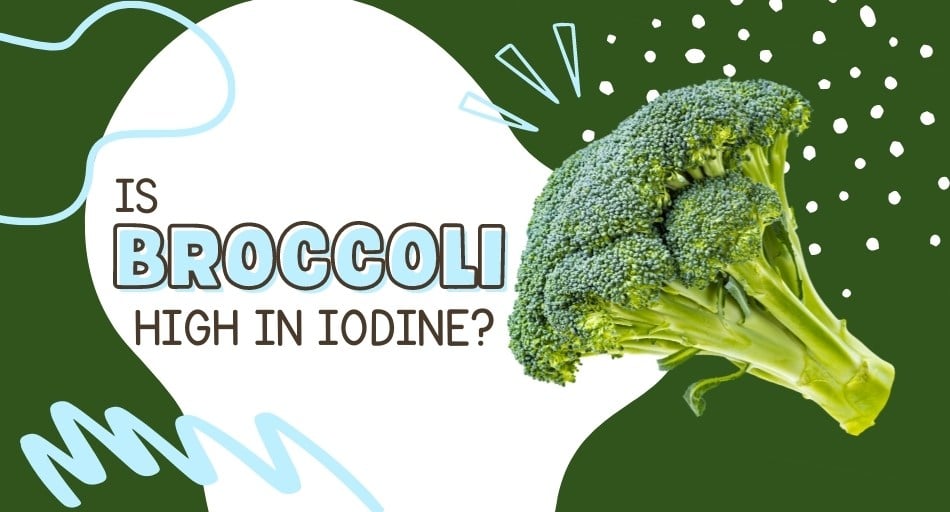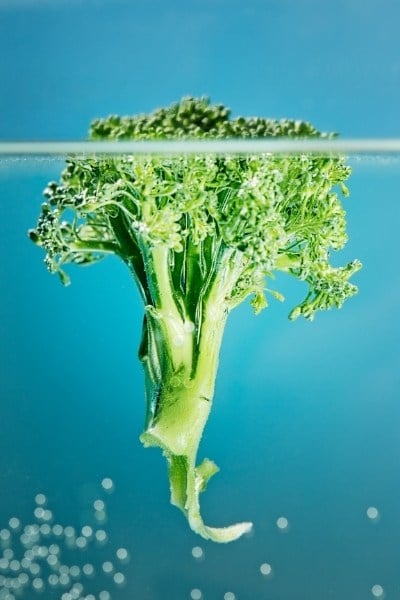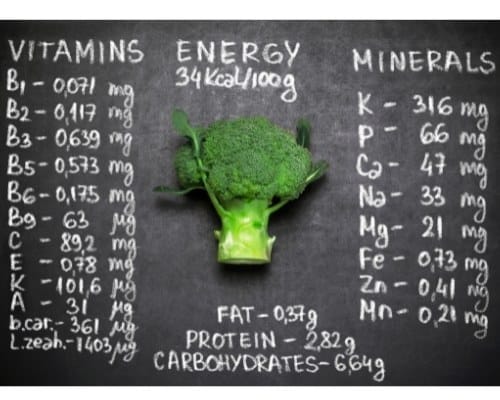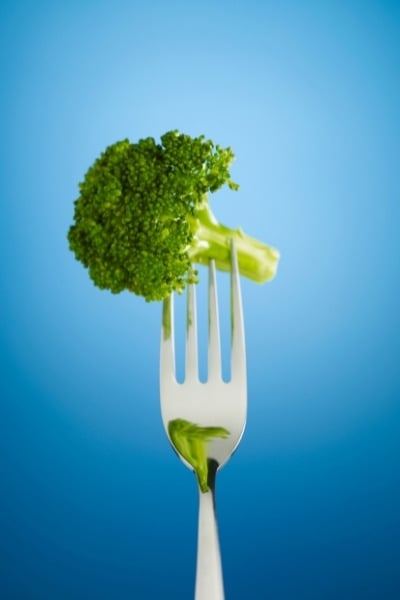Broccoli is a good source of dietary fiber, vitamin C, vitamin K, and potassium. Broccoli is also a source of the minerals calcium and magnesium.

Additionally, broccoli is a source of several phytonutrients, including sulforaphane. However, is broccoli high in iodine?
Table of Contents
- Is broccoli high in iodine?
- How much iodine is in broccoli?
- What are the types of broccoli?
- What type of broccoli is high in iodine?
- Can you take in too much iodine from broccoli?
- Is it OK to eat broccoli every day?
- Is broccoli goitrogenic?
- Is cooked broccoli high in iodine?
- Why is iodine important?
- How can I get iodine if I don't like broccoli?
- How can you prepare broccoli?
- What can you add to broccoli to make it taste better?
- What are the health benefits of eating broccoli?
- What are the side effects of broccoli?
- Conclusion
Is broccoli high in iodine?
Broccoli is a good source of iodine and other nutrients because it’s a cruciferous vegetable. Cruciferous vegetables are a part of the cabbage family and are known for their high nutrient content.
It’s therefore important to include broccoli in your diet to ensure you’re getting the nutrients you need. Additionally, broccoli is a good source of iodine, which is important for thyroid health.
How much iodine is in broccoli?
Broccoli is a good source of iodine, with about 11 micrograms in a cup which is about 8% of the recommended daily intake.
Most of the iodine is found in the stem and florets, with a little in the leaves. The amount of iodine in broccoli can vary depending on the soil where it was grown, so it's a good idea to eat a variety of cruciferous vegetables to make sure you're getting enough.
The daily recommended intake of iodine is 140 - 150 micrograms, so eating broccoli is a good way to reach your daily intake.

What are the types of broccoli?
There are many types of broccoli available. They include:
1. Calabrese broccoli: This type has a green head and florets that are cream-colored.
2. Italian broccoli: This type has a dark green head and light green florets.
3. Purple broccoli: This type has a purple head and florets that are light purple.
4. Sprouting broccoli: This type has a small, green head and florets that are yellow and white.
5. Cauliflower broccoli: This type has a small, green head and florets that are white.
6. Romanesco broccoli: This type has a cone-shaped head and florets that are light green.
7. Broccoflower: This type is a mix of broccoli and cauliflower. It has a green head and florets that are white.
What type of broccoli is high in iodine?
All types of broccoli are high in iodine, but some have more iodine than others. For example, purple broccoli has the highest concentration of iodine, followed by Italian broccoli.

If you want to include broccoli in your diet to get the iodine you need, then try including one of these types.
Can you take in too much iodine from broccoli?
Eating broccoli in excess could lead to an iodine overdose. The risk associated with this overdose is relatively low, but it’s important to be aware of it.
It can cause hypothyroidism, which is a condition where the thyroid gland doesn’t produce enough hormones. Symptoms of this condition can include weight gain, fatigue, and hair loss.
Is it OK to eat broccoli every day?
Broccoli is okay to eat every day. In fact, it’s recommended because broccoli is a healthy vegetable that provides a good amount of nutrients, including iodine.
However, it’s important to vary your diet and include other healthy foods as well. This will help ensure you are getting the nutrients you need.
Is broccoli goitrogenic?

Goitrogens are substances that can interfere with the production of thyroid hormones. Broccoli is a goitrogenic vegetable, but the risk of an iodine overdose from eating broccoli is low.
If you have a thyroid problem, it’s important to consult with your doctor before including broccoli in your diet.
Is cooked broccoli high in iodine?
Cooking broccoli does not decrease its iodine content. Cooking broccoli can increase its nutrient content.
This is because the heat from cooking helps to release the nutrients from the broccoli. So, if you’re looking for a way to get the iodine you need, cooked broccoli is a good option.
Why is iodine important?
Iodine is important for thyroid health. The thyroid gland needs iodine to produce thyroid hormones.
These hormones are essential for regulating many aspects of the body's metabolism. Iodine is also important for fetal development.
Pregnant women need to ensure they’re getting enough iodine to ensure the health of their babies.
How can I get iodine if I don't like broccoli?
If you don't like broccoli, there are other ways to get iodine. Iodine is found in many foods, including seafood, dairy products, and eggs.
There are also many dietary supplements available that contain iodine. If you’re looking for a way to get the iodine you need, consider including one of these foods or supplements in your diet.

How can you prepare broccoli?
There are many ways to prepare broccoli. You can steam it, boil it, or fry it. You can also add it to soups or salads. Broccoli is a very versatile vegetable and can be used in many different dishes according to your taste.
What can you add to broccoli to make it taste better?
Some people like to add butter or margarine to their broccoli. Others like to add cheese or sour cream.
You can also add salt, pepper, or other spices to make it taste better. Experiment with different seasonings to find the ones that you like best.
What are the health benefits of eating broccoli?
There are many benefits of eating broccoli. They include:
1. Broccoli is high in nutrients, including iodine.
2. It's a good source of fiber.
3. It's a good source of antioxidants.
4. Help reduce the risk of cancer.
5. Help reduce the risk of heart disease.
6. Can help improve your digestion.
7. Help reduce the risk of asthma.
8. Help reduce inflammation.
What are the side effects of broccoli?
The most common side effects of broccoli include:
1. Bloating: Broccoli is high in fiber, which can cause bloating.
2. Gas: Broccoli is also high in gas-producing carbohydrates, which can cause gas.
3. Iodine overdose: Too much iodine can cause hypothyroidism.
4. Allergic reaction: Some people may have an allergic reaction to broccoli.
5. Diarrhea: Broccoli can also cause diarrhea in some people.

Conclusion
In conclusion, broccoli is a significant source of iodine and can help to prevent iodine deficiency. It’s important to include broccoli in your diet to ensure you’re getting enough iodine, especially if you’re at risk for deficiency.
Broccoli is also a good source of other nutrients, including vitamin C and vitamin K. So, it's not only good for your thyroid health, but it can also help to boost your overall health.
